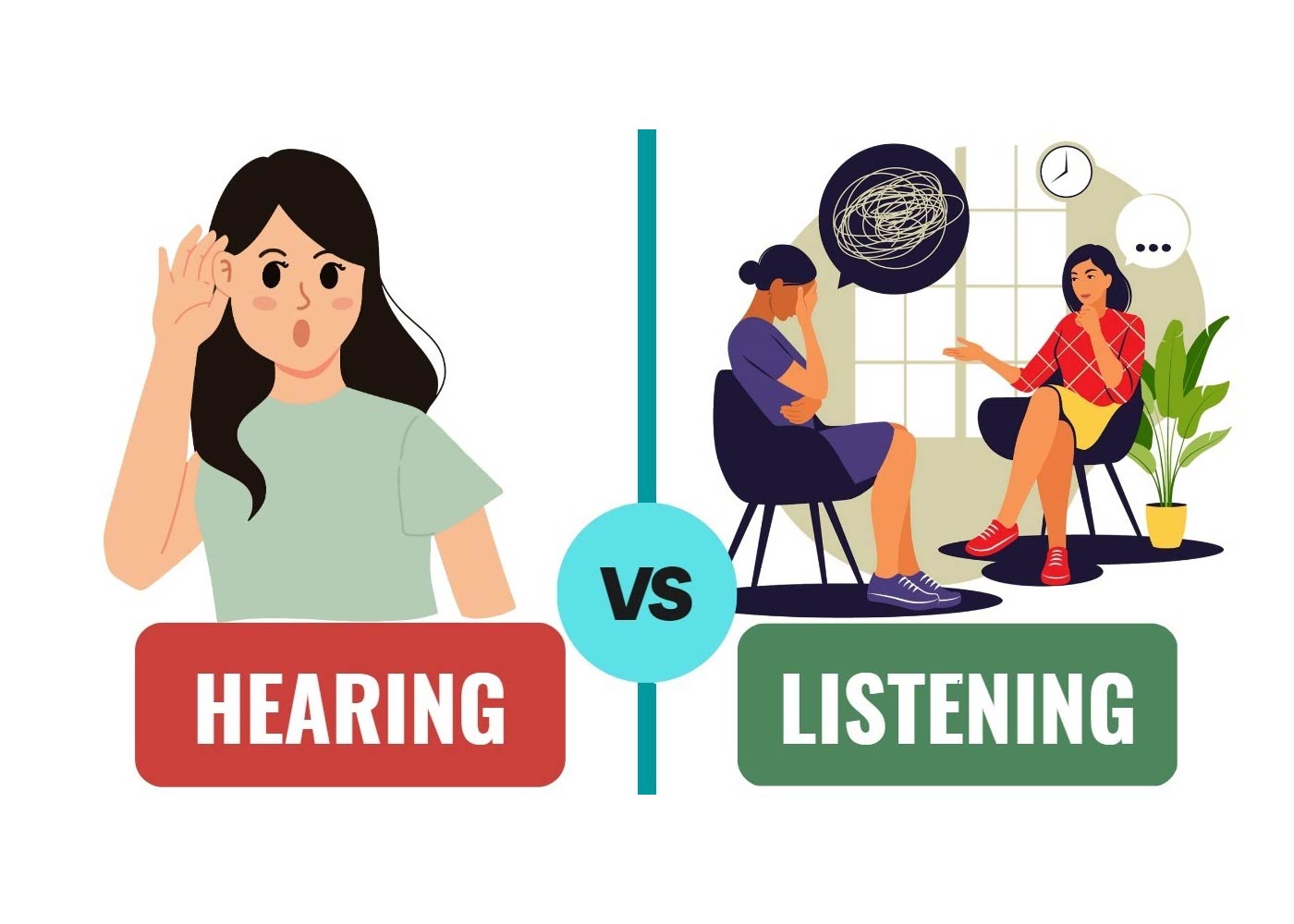Introduction:
In a world filled with constant noise, true understanding
seems to be an elusive treasure. We often find ourselves trapped in the mere
act of hearing, unaware of the transformative potential of active listening.
So, what sets apart hearing from listening? Join us on a journey as we delve
into the profound difference between these two seemingly similar concepts.
Section 1: The Essence of Hearing
Imagine standing in a crowded marketplace, surrounded by a
cacophony of voices and sounds. You hear the hubbub, but does it resonate
within you? Hearing is the passive reception of auditory stimuli”an involuntary
process that requires no conscious effort. Like the distant hum of traffic or
the rustling of leaves, hearing happens effortlessly, almost as if it were a background
melody.
Section 2: The Magic of Listening
Listening, on the other hand, is an art form”an active
engagement that goes beyond the superficial. It requires intentionality, focus,
and a willingness to embrace the narrative being shared. Think of listening as
a melody played by a master pianist, each note carefully crafted to evoke
emotions and provoke deep introspection. When we truly listen, we transform
from mere spectators to active participants in the symphony of communication.
Section 3: The Elements of Active Listening
a) Presence and Attention: Active listening demands our
undivided attention. Just as a photographer focuses their lens to capture the
essence of a moment, we must sharpen our focus to absorb the full depth of what
is being communicated. By being fully present, we demonstrate respect and
create an environment conducive to meaningful dialogue.
b) Empathy and Understanding: Active listening goes beyond
the words spoken. It involves stepping into the speaker's shoes, grasping their
perspective, and empathizing with their experiences. Like a seasoned actor who
immerses themselves in a role, we seek to understand the emotions, motives, and
underlying messages conveyed.
c) Non-Verbal Cues: Communication extends beyond verbal
language. Our body language, facial expressions, and gestures form a powerful
means of expression. By observing and interpreting these cues, we gain
additional layers of insight into the speaker's thoughts and emotions.
Section 4: The Benefits of Active Listening
a) Strengthening Relationships: When we truly listen, we
foster deeper connections with those around us. By validating their thoughts
and feelings, we show that we value their presence, strengthening the bonds of
trust and empathy.
b) Conflict Resolution: Active listening acts as a balm in
times of conflict. By actively engaging with opposing viewpoints, we create a
space for understanding and compromise. We defuse tension, opening doors to
resolution and growth.
c) Learning and Growth: Listening unlocks a world of
knowledge and wisdom. By embracing diverse perspectives, we expand our
horizons, challenge our preconceptions, and foster personal and intellectual
growth. Just as a well-nourished garden blooms with diverse flowers, an open
mind flourishes with new ideas.
FAQs (Frequently Asked Questions):
1. Can anyone become a good listener? Becoming a good
listener is a skill that can be developed with practice and dedication. It
requires conscious effort to cultivate the habits of active listening and
create an environment conducive to meaningful dialogue.
2. How can I improve my listening skills? Some tips to
enhance your listening skills include focusing on the speaker, maintaining eye
contact, avoiding distractions, asking clarifying questions, and paraphrasing what
you have heard to ensure understanding.
3. Is listening more important than speaking? Both listening
and speaking are essential components of effective communication. However,
listening forms the foundation upon which meaningful dialogue is built. By listening
attentively, we gain valuable insights and contribute to a more fruitful
exchange of ideas.
Conclusion:
In a world filled with noise, the art of listening is a
transformative force that can revolutionize our relationships, our
understanding, and our personal growth. By moving beyond the realm of passive
hearing, we unlock a realm of possibilities, embracing the symphony of life's
experiences. So, let us embark on this journey together, tuning our ears to the
melody of active listening, and discover the profound impact it can have on our
lives.
If you wish to contribute to our blog, please email us on morhadotsan@gmail.com.























